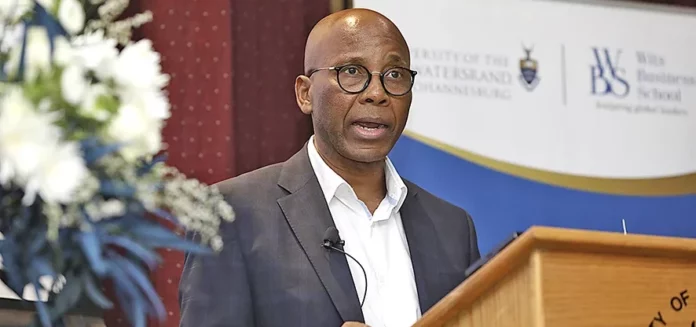Last week, Eskom board member Mteto Nyati suggested that the government procurement rules are “not as agile as they should be”. The rules in question are broad-based black economic empowerment procurement requirements.
Nyati is not the first to call for the removal of BEE in Eskom, and the public sector more generally. In April, the DA submitted a parliamentary Private Members Bill intended to rescind BEE in government tendering, which would logically also find expression in the private sector.
In July, the Institute of Race Relations (IRR) commenced a petition to scrap BEE at Eskom. Solidarity and Afriforum have articulated the same position.
The agitation for the annulment of BEE is therefore not new. Since 1994, public policy measures to affirm black people – who were systematically disadvantaged as a group – have been opposed at every step of the way by rightwing groups led primarily by the DA.
What is new about the latest call are three interrelated processes. The first is that some of those who benefited from post-apartheid redress measures have begun to kick the ladder, with the result that those who are situated where they once were may not be able to climb.
This is not to suggest that BEE is a silver bullet to our socio-economic woes or that its implementation has been smooth sailing. Space does not permit satisfactory discussion of the ladder phenomenon, but we are witnessing, albeit in a limited way, the realignment of class interests across the racial divide, which energises rightwing South Africa’s spirited denial of how colonial and apartheid history continues to shape the present.
The second is that as ideological opponents of the transformation project, the right has, over the years, gained the upper hand in public, political and policy discourses while progressive forces navel-gaze, default badly on the fulfilment of national tasks and, notwithstanding rhetoric, retreat further away from the battle of ideas. Alas, zemka inkomo! – the family cattle continue to disappear.
The third is that corruption has empowered the right to socialise a fictitious causal relationship between BEE and corruption in the same way that some mindbogglingly ill-suited appointments in the public sector have provided lethal
ammunition against the deployment of ANC faithful.
Yet, the practice is not unique to the governing ANC. Political parties the world over deploy members and non-members alike for their commitment to party policy trajectory and their combined qualifications, and other attributes to strategic responsibilities in the public sector. Needless to say that it is not at all certain that all who are casually referred to as
“cadres” in fact, fit the bill.
Rightwing success in projecting BEE as inherently corrupt has set the stage for the final offensive – the privatisation of state-owned enterprises, an instinctive position of the right. The IRR’s Mlondi Mdluli argues as much with respect to Eskom. “Privatisation,” he wrote in July, “is the [only] solution.”
Electricity would consequently fall under the control of private (white) corporations with limited participation by agreeable blacks The profit motive will override all else, including the developmental imperative and the plight of millions of poor people.
Whereas the ANC and the government must take responsibility for their commissions and omissions, there can be no gainsaying the fact that some of our country’s economic elites are yet to appreciate the hazards posed by the rabid beast of colonial and apartheid race-based poverty. In their wisdom, the problem is the ANC’s and the government’s alone.
The self-assured calculus seems to be that for presiding over this nightmare and its own self-inflicted injuries, there is little to lose sleep about since the ANC will soon lose power. With its demise will disappear policy irritants like BEE and affirmative action, leading to privatisation to the full and desired dictatorship of private corporations – a harbinger for an eternally happy matrimony!
The captains of apartheid must have thought that they had nipped the native problem in the bud when they sentenced the Rivonia treason trialists to life imprisonment on Robben Island. But did they?
- Ratshitanga is a communications and social participation consultant based in Johannesburg
Follow @SundayWorldZA on Twitter and @sundayworldza on Instagram, or like our Facebook Page, Sunday World, by clicking here for the latest breaking news in South Africa. To Subscribe to Sunday World, click here



